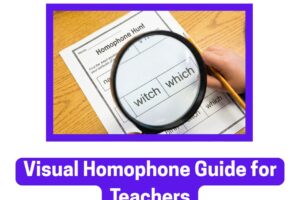
Nature Words by Number of Letters
Nature Word Bank: Building Vocabulary by Word Length
Nature has always been a source of inspiration for language and creativity. This curated word bank invites learners, educators, and creative minds to explore words tied to animals, plants, and landscapes—arranged by the number of letters they contain. Whether you’re enhancing vocabulary, sparking imagination in writing, or planning engaging classroom activities, these nature-themed words bring the beauty of the outdoors into your linguistic adventures.
Nature provides an endless source of inspiration, not just for art or science, but also for language. By integrating nature-themed words into your teaching, you can bring the beauty and wonder of the outdoors into your linguistic adventures, enriching your students’ vocabulary and engaging their imagination.

Why Use Nature-Themed Words?
- Engagement: Students are naturally curious about the environment around them. Using words inspired by nature can spark interest and make learning more relatable and fun.
- Sensory Learning: Nature words often appeal to multiple senses, helping in the retention of new vocabulary through vivid, sensory-rich descriptions.
- Interdisciplinary Learning: These words can serve as bridges to Nature-based lessons in science, literature, art, and even social studies, fostering a holistic educational experience.
Nature-Themed Vocabulary to Explore
- Flora: Teach words like blossom, foliage, canopy, petal, and sprout. Use these in describing parts of plants, seasons, or in storytelling.
- Fauna: Introduce terms like flutter, howl, scuttle, nest, and prowl. These can be used in lessons about animal behaviours or habitats.
- Landscapes: Words such as meadow, brook, gorge, plateau, and dune can help describe different geographical features, enhancing geography or creative writing classes.
- Weather and Atmosphere: Utilise breeze, drizzle, twilight, misty, and clear. These can enrich descriptions in literature or help explain weather patterns in science classes.
Incorporating Nature Words in Teaching
- Storytelling: Create stories or adapt existing ones where characters encounter these natural elements. This not only teaches vocabulary but also encourages narrative skills.
- Writing Prompts: Use nature-themed words as prompts for poetry or descriptive writing exercises. Ask students to describe a scene using at least five nature words.
- Interactive Games: Play games like “Nature Bingo” where students listen for or spot these words in texts or around the classroom/schoolyard.
- Art Projects: Combine language arts with visual arts by having students illustrate the words, perhaps creating a class book or mural.
- Science Connection: Use these words when discussing ecosystems, life cycles, or environmental issues, linking language learning with scientific inquiry.
Tips for Effective Implementation
- Contextual Learning: Always introduce these words within a context. Explain them through stories, videos, or actual outdoor exploration if possible.
- Repetition and Variation: Use the words frequently in different contexts to reinforce learning. Encourage students to use them in their speech or writing.
- Cultural Sensitivity: Be mindful of cultural contexts. Some words might have different connotations or be less familiar in diverse student populations.
Nature Word List by Number of Letters
3-Letter Nature Words
Small yet significant, these three-letter words highlight foundational elements of nature. Ideal for early learners and beginners, they provide a starting point for exploring the natural world.
- Ant – Industrious creatures that showcase teamwork.
- Bee – Essential pollinators buzzing with importance.
- Fox – Agile and clever, a symbol of adaptability.
- Oak – A majestic tree that signifies strength and endurance.
- Sea – The deep, mysterious waters teeming with life.
- Sky – The vast expanse above, ever-changing and inspiring.
- Sun – The life-giving star that sustains our planet.
4-Letter Nature Words
These four-letter words add a touch of complexity, diving deeper into the intricacies of nature’s wonders.
- Bird – Graceful creatures that bring songs to the skies.
- Fern – Delicate green plants that thrive in shaded areas.
- Lake – Calm bodies of water nestled in landscapes.
- Leaf – A vital part of plants, responsible for photosynthesis.
- Moss – A soft, green carpet that covers forest floors and stones.
- Rock – Silent witnesses to Earth’s history, strong and enduring.
- Sand – Tiny grains that shape beaches and deserts.
- Tree – The towering giants of forests, providing oxygen and shelter.
- Deer – Gentle herbivores, often seen grazing in forests.
5-Letter Nature Words
Expand your vocabulary with these five-letter words that describe natural phenomena and ecosystems.
- Beach – A meeting point of land and sea, often a place of serenity.
- Cloud – The floating vapor that paints the sky in myriad forms.
- Coral – Vibrant underwater ecosystems teeming with marine life.
- Earth – Our home, rich in diversity and wonder.
- Grass – The lush greenery that blankets meadows and fields.
- River – Flowing waters carving paths through the land.
- Misty – Low level cloud
- Ocean – The vast, blue waters covering most of Earth.
6-Letter Nature Words
These six-letter words reflect the diversity and richness of natural environments.
- Forest – Dense woodlands that house countless species.
- Flower – Nature’s artwork, colourful and fragrant.
- Garden – A cultivated space of beauty and sustenance.
- Jungle – Lush tropical rainforests brimming with life.
- Meadow – Open fields adorned with wildflowers and grasses.
- Turtle – Endearing reptiles with shells for protection.
- Valley – Lowlands nestled between mountains or hills.
- Stream – Gentle waterways that nourish the land.
- Sunset – The captivating colours of the day’s end.
7-Letter Nature Words
These longer words provide opportunities for storytelling and in-depth exploration of the natural world.
- Blossom – Flowers in bloom, representing growth and renewal.
- Fernery – A shaded area for growing ferns, often serene.
- Horizon – The meeting point of Earth and sky, full of promise.
- Pebbles – Small, smooth stones shaped by water and time.
- Aquatic – Relating to water environments, from rivers to oceans.
- Habitat – The natural home or environment of an animal, plant, or other organism.
8-Letter Nature Words
Dive into these intricate words that capture the essence of larger natural phenomena.
- Heritage – The natural treasures passed down through generations.
- Mountain – Majestic landforms that inspire awe and adventure.
- Wildlife – The diverse animals that inhabit our planet.
- Rainfall – The life-giving precipitation that nourishes the earth.
- Sunlight – The energy source for all life, driving photosynthesis.
- Seabird – Birds adapted for life at sea, contributing to marine ecosystems.
- Glacier – Vast, slow-moving rivers of ice shaping landscapes.
- Foliage – The collective leaves of plants, changing with the seasons.
9-Letter+ Nature Words
These words explore complex systems and concepts within nature.
- Biodiversity – The variety of life on Earth, vital for ecological health.
- Ecosystem – Communities of living organisms interacting with their environment.
- Landscape – The visible features of an area shaped by nature and time.
- Pollination – The transfer of pollen, essential for plant reproduction.
- Marshland – Wetlands teeming with unique flora and fauna.
- Butterfly – A delicate creature symbolizing transformation.
- Conservation – The protection, preservation, and management of natural resources.
- Vegetation – The plant life of a region, defining its ecological character.
- Geothermal – Heat from within the Earth, used for energy or creating unique habitats.
- Atmosphere – The envelope of gases surrounding the Earth, crucial for life.
- Stratosphere – The second layer of the atmosphere, where the ozone layer resides.
- Environment – The surroundings or conditions in which a person, animal, or plant lives.
- Regeneration – The natural process of renewing or restoring ecosystems.
Related
Discover more from Special Education and Inclusive Learning
Subscribe to get the latest posts sent to your email.
Source link



